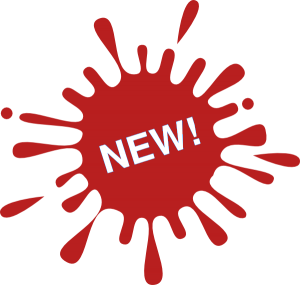Each curricula is developed with service categories in mind. These are identified in the Outline for each curricula. However, each provider is responsible for ensuring the proper service category when providing and billing for the service. It is also recommended that each curricula be reviewed and edited as you deem necessary to fit the strengths and needs of each particular group. Thank you.
HEALTH & WELLNESS
FYI – Many of the curricula in the other categories have health and wellness tools as part of the curricula content.
- On My Own Managing My Symptoms and Medication: Participants will explore the role of medication, ways of side effects and reactions, personal beliefs about medication and the idea of personal medicine.
- I Can Cook Healthy Foods! Cognitive Remediation is a set of techniques and interventions, such as drills, activities and exercises, designed to improve an individual’s functioning by improving the cognitive skill that is the target of the remediation task. These skills include, but are not limited to: the ability to pay attention, remember, process information, solve problems, organize and reorganize information, communicate and act upon information. Cognitive remediation techniques work to improve mental capabilities necessary to learn academic subject matter, and more generally to function in daily life. Cognitive remediation is an optional PROS service, subject to prior review and written approval of the Office.
- Making Wise Decisions about Alcohol and Drugs: This is a psycho-educational group for people with co-occurring disorders. The group will cover various facts on drugs and alcohol, and offer participants the opportunity to define what recovery means to them. Group material includes discussion of interactions between alcohol, illicit drugs and prescription drugs, the impact of substance use on physical and mental health, using alcohol and other drugs to cope with mental health symptoms, and using refusal skills to deal with situations where individuals feel pressured to use alcohol or other drugs.
- Mind and Body Health: Mind and Body Heath is designed to help member explore the challenges of maintaining good physical health and resolving obstacles that stand in the way of better health by looking at the connection between mind and body health and making plans for healthier living to support recovery.
- Healthy Sexual Relationships: is designed to allow participants to identify the best practices for sexual health and identifying situations that may impede the health relationships that they desire. Participants will review anatomy, STI’s, identifying toxic relationships, contemplation of pregnancy and gender identity and or roles. At the end of the course, participants will have the basic information need to safely participate in a sexual relationship. The course guides participants through general information that is vetted and provides a person with the dynamics that they face when sexually active.
- Self-Care and Living On My Own: Participants will explore the importance of self-care. The goal of this group is to help individuals to develop and put into action a self-care plan in order to attain or sustain independent living environments.
- Food Safety: The purpose of this curriculum is to teach basic food safety principles to individuals who seek independent living situations. There are two components of the group. The first involves the group process, learning material related to the topic of food safety and practicing or visualizing what was learned in the session through interactive group activities. The second component of the group is where participants put all of what they learned together in order to plan and prepare a meal celebrating the success of the group.
Health & Wellness

